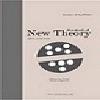Prediction of Season-End Point for Football using Pythagorean Expectation
Sports data mining, Pythagorean Expectation, Point prediction Soccer, Football,
___
- [1] S. Baysal, E. Yıldıztepe, Futbol Takımlarının Sezon Sonu Puanlarının Tahmini için Pisagor Beklentisine Dayalı bir Çalışma, Akademik Bilişim 2019, Ordu, 2019.
- [2] J. Cochran, R. Blackstock, Pythagoras and the National Hockey League, Journal of Quantitative Analysis in Sports 5 (2009) 1-13.
- [3] J. Croucher, Player ratings in one-day cricket, Proceedings of the Fifth Australian Conference on Mathematics and Computers in Sport, Sydney, 2000.
- [4] C. Davenport, K. Woolner, Revisiting the Pythagorean Theorem: Putting Bill James’ Pythagorean Theorem to the test', https://www.baseballprospectus.com/news/article/342/revisiting-the-pythagorean-theorem-putting-bill-james-pythagorean-theorem-to-the-test/ (January, 2019).
- [5] M. Eastwood, Applying the Pythagorean Expectation to Football: Part Two, http://pena.lt/y/2012/12/03/applying-the-pythagorean-expectation-to-football-part-two/ (December, 2018).
- [6] H. H. Hamilton, An extension of the pythagorean expectation for association football, Journal of Quantitative Analysis in Sports 7 (2011).
- [7] B. James, The Bill James Baseball Abstract, 1980.
- [8] B. James, The Bill James Historical Baseball Abstract, Villard, New York, 1985.
- [9] J. Lee, Measuring the accuracy of the Pythagorean theorem in Korean pro-baseball, Journal of the Korean Data and Information Science Society 26 (2015) 653-659.
- [10] C. K. Leung, K. W. Joseph, Sports data mining: predicting results for the college football games, Procedia Computer Science 35 (2014) 710-719.
- [11] Mackolik, Puan durumu, http://arsiv.mackolik.com/Puan-Durumu (December, 2018).
- [12] S. J. Miller, A Derivation of the Pythagorean Won-Loss Formula in Baseball, Chance 20 (2007) 40-48.
- [13] D. Oliver, Basketball on paper : rules and tools for performance analysis, Potomac, Washington D.C, 2004.
- [14] A. Schatz, Pythagoras on the Gridiron, https://www.footballoutsiders.com/stat-analysis/2003/pythagoras-gridiron (January, 2019).
- [15] R. P. Schumaker, O. K. Solieman, H. Chen, Sports Data Mining, Springer, Boston, 2010.
- [16] D. D. Tung, Confidence Intervals for the Pythagorean Formula in Baseball, http://www.rxiv.org/pdf/1005.0020v1.pdf (November, 2018).
- [17] S. C. Valero, Predicting Win-Loss outcomes in MLB regular, International Journal of Computer Science in Sport 15 (2016) 91-112.
- [18] A. J. Vine, Using Pythagorean Expectation to Determine Luck in the KFC Big Bash League, Economic Papers 35 (2016).
- [19] D. Zminda, J. Dewan, STATS Inc. Staff, STATS Basketball Scoreboard, 1993-94, Harpercollins Publishers, Skokie, 1993.
- Yayın Aralığı: 4
- Başlangıç: 2014
- Yayıncı: Naim Çağman
Sezer BAYSAL, Engin YILDIZTEPE
Parimala Mani, Said Broumi, Karthika Muthusamy
Ochanan NETHAJİ, İlangovan RAJASEKARAN
Kamalendra KUMAR, Rakesh KUMAR, Manoj KARNATAK
Aslıhan SEZGİN, Shahzad AHMAD, Adnan MEHMOOD
Priya BAGHEL, Viquar Husain BADSHAH, Tushar Kant JHALA
Muhammad Uzair KHAN, Raees KHAN, Syed İnayat Ali SHAH, Muhammad LUQMAN
